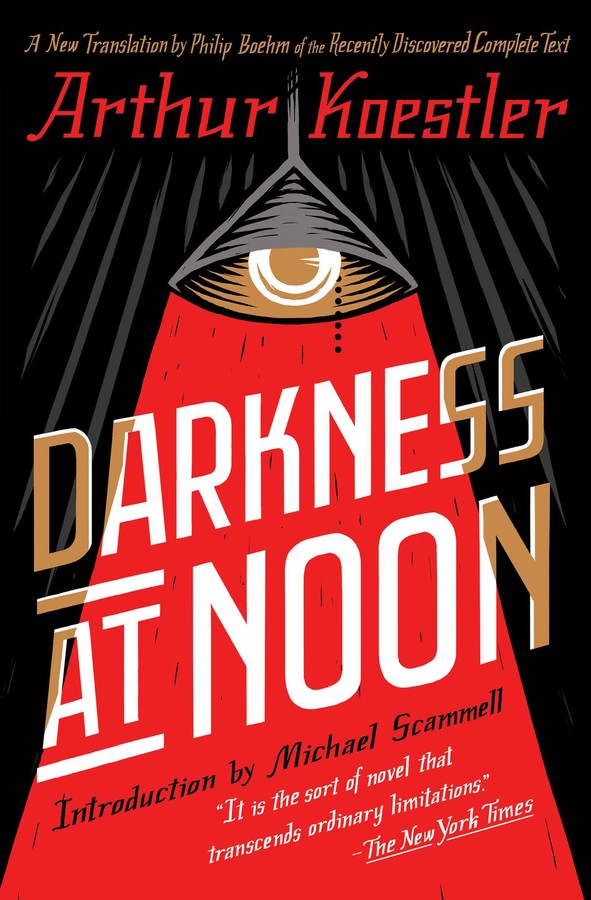272 pages
English language
Published July 24, 2019 by Scribner.

272 pages
English language
Published July 24, 2019 by Scribner.
Darkness at Noon (German: Sonnenfinsternis) is a novel by Hungarian-born British novelist Arthur Koestler, first published in 1940. His best known work, it is the tale of Rubashov, an Old Bolshevik who is arrested, imprisoned, and tried for treason against the government that he helped to create.
The novel is set in 1939 during the Stalinist Great Purge and Moscow show trials. Despite being based on real events, the novel does not name either Russia or the Soviets, and tends to use generic terms to describe people and organizations: for example the Soviet government is referred to as "the Party" and Nazi Germany is referred to as "the Dictatorship". Joseph Stalin is represented by "Number One", a menacing dictator. The novel expresses the author's disillusionment with the Bolshevik ideology of the Soviet Union at the outset of World War II.
In 1998, the Modern Library ranked Darkness at Noon …
Darkness at Noon (German: Sonnenfinsternis) is a novel by Hungarian-born British novelist Arthur Koestler, first published in 1940. His best known work, it is the tale of Rubashov, an Old Bolshevik who is arrested, imprisoned, and tried for treason against the government that he helped to create.
The novel is set in 1939 during the Stalinist Great Purge and Moscow show trials. Despite being based on real events, the novel does not name either Russia or the Soviets, and tends to use generic terms to describe people and organizations: for example the Soviet government is referred to as "the Party" and Nazi Germany is referred to as "the Dictatorship". Joseph Stalin is represented by "Number One", a menacing dictator. The novel expresses the author's disillusionment with the Bolshevik ideology of the Soviet Union at the outset of World War II.
In 1998, the Modern Library ranked Darkness at Noon number eight on its list of the 100 best English-language novels of the 20th century, even though Koestler wrote it in German.
(Source: Wikipedia)
